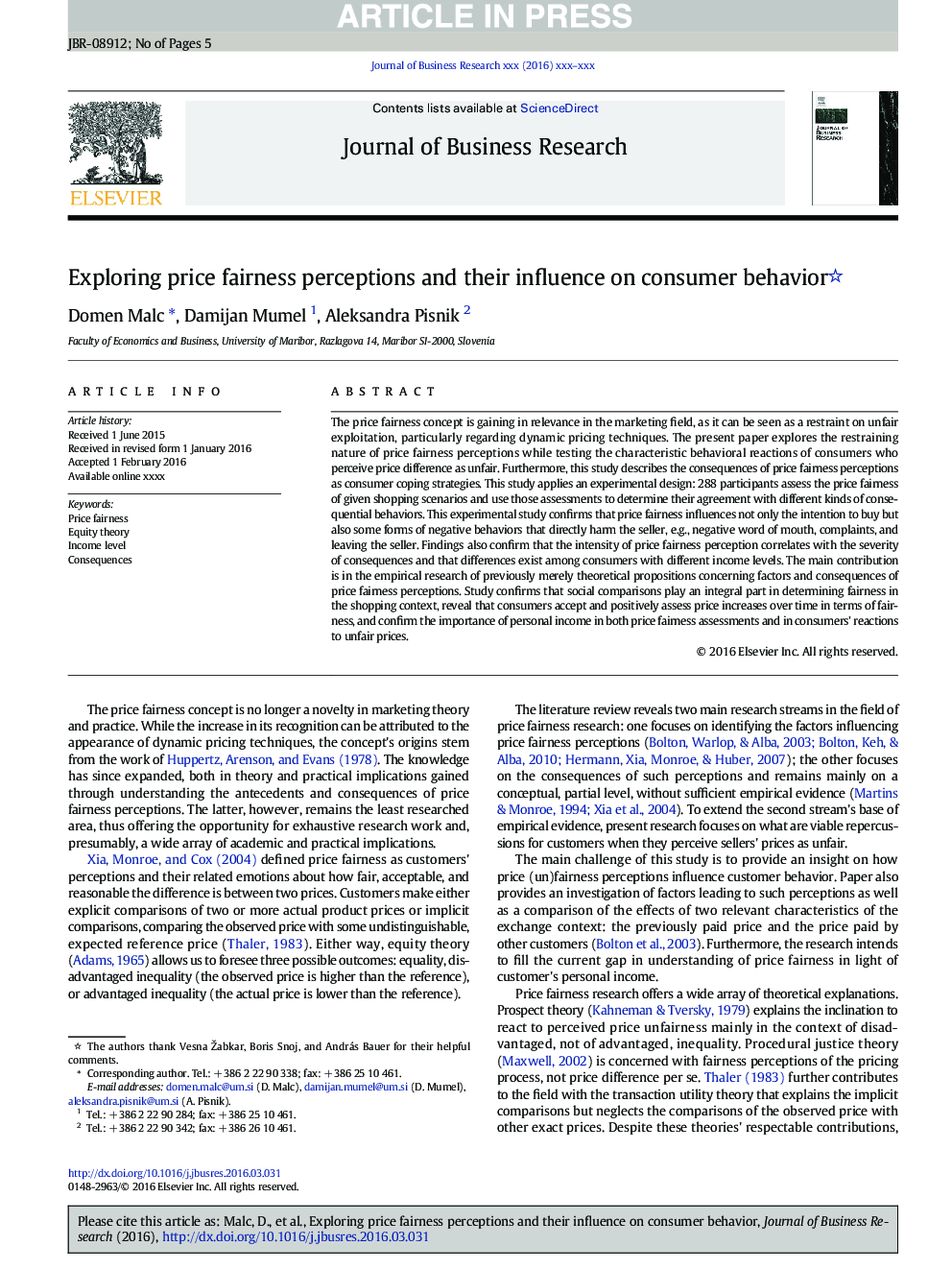| Article ID | Journal | Published Year | Pages | File Type |
|---|---|---|---|---|
| 10492541 | Journal of Business Research | 2016 | 5 Pages |
Abstract
The price fairness concept is gaining in relevance in the marketing field, as it can be seen as a restraint on unfair exploitation, particularly regarding dynamic pricing techniques. The present paper explores the restraining nature of price fairness perceptions while testing the characteristic behavioral reactions of consumers who perceive price difference as unfair. Furthermore, this study describes the consequences of price fairness perceptions as consumer coping strategies. This study applies an experimental design: 288 participants assess the price fairness of given shopping scenarios and use those assessments to determine their agreement with different kinds of consequential behaviors. This experimental study confirms that price fairness influences not only the intention to buy but also some forms of negative behaviors that directly harm the seller, e.g., negative word of mouth, complaints, and leaving the seller. Findings also confirm that the intensity of price fairness perception correlates with the severity of consequences and that differences exist among consumers with different income levels. The main contribution is in the empirical research of previously merely theoretical propositions concerning factors and consequences of price fairness perceptions. Study confirms that social comparisons play an integral part in determining fairness in the shopping context, reveal that consumers accept and positively assess price increases over time in terms of fairness, and confirm the importance of personal income in both price fairness assessments and in consumers' reactions to unfair prices.
Related Topics
Social Sciences and Humanities
Business, Management and Accounting
Business and International Management
Authors
Domen Malc, Damijan Mumel, Aleksandra Pisnik,
